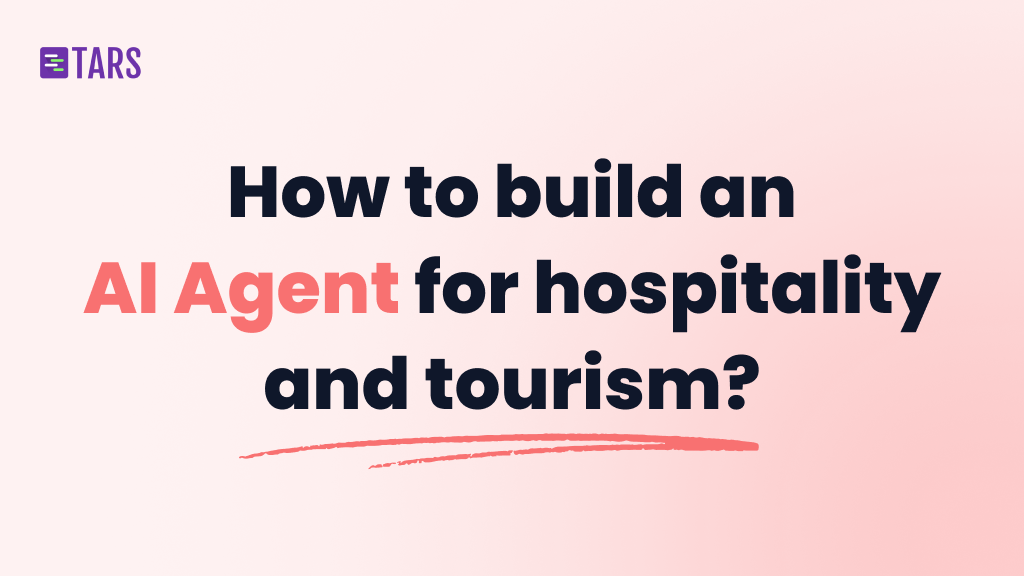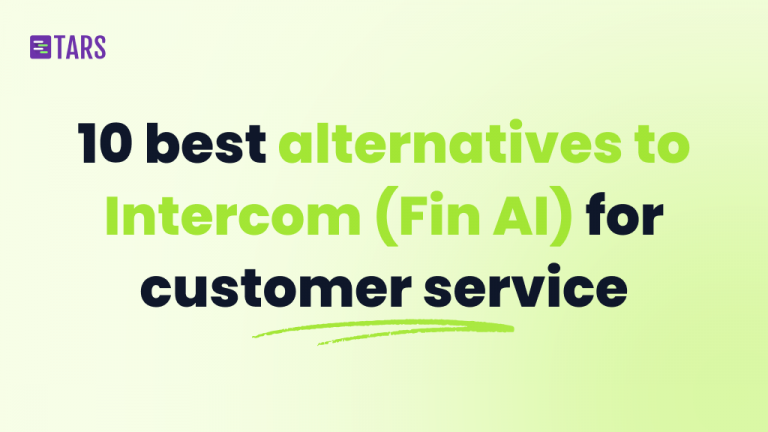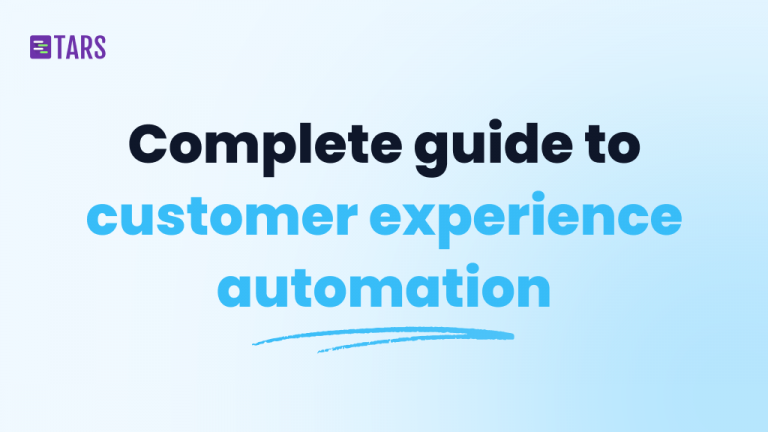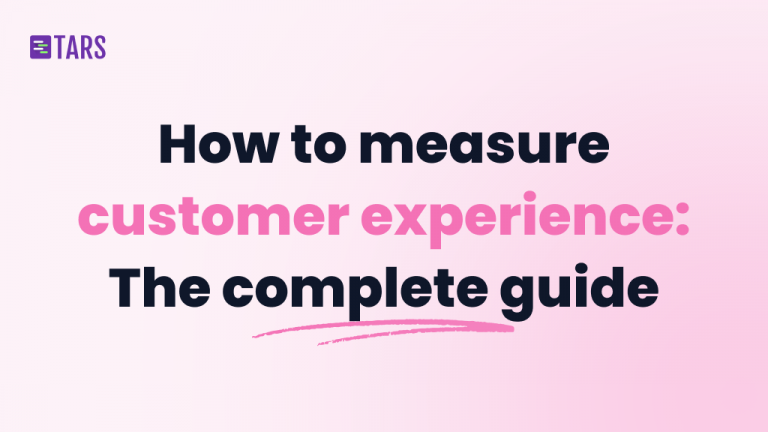How to build an AI Agent for hospitality and tourism?

Your potential guests are drowning in travel options. They’re bouncing between dozens of booking sites, reading endless reviews, and still can’t figure out which hotel fits what they need. Meanwhile, your amazing properties are buried on page 47 of some generic search results, competing with massive OTAs that have unlimited marketing budgets and algorithms designed to turn your unique offerings into commodities.
The worst part? When travelers finally stumble onto your website, they’re met with static pages that make them do all the work. They have to decode which room type suits their needs, guess whether your spa actually offers the treatments they want, and wonder if your restaurant can handle their dietary restrictions.
What if your website had a personal travel advisor?
Picture this: those same frustrated travelers land on your website and immediately get a personal travel advisor who:
- Knows everything about your hotels and amenities – Every room type, restaurant menu, spa service, and local attraction
- Actually understands how to match guests with the perfect stay – Using smart qualification questions to identify needs
- Works 24/7 without coffee breaks or sick days – Never misses a potential booking opportunity
- Qualifies leads while showcasing properties – Guides people toward booking directly with you
This isn’t sci-fi. Hotels like The Ritz-Carlton and Marriott are already experimenting with conversational AI to reduce their dependence on OTAs and increase direct bookings. The technology has hit a sweet spot where small and medium-sized hotel groups can deploy the same sophisticated tools that were once exclusive to major chains with massive IT budgets.
The AI Agent in action: A real example
Let us walk you through what your website visitors would experience. We’ll use a Marriott example to show the concept:
The welcome: The Agent immediately greets visitors as Marriott’s personal travel expert When someone says they’re planning to go to Bali, it starts strategically qualifying them.
Smart qualification: Instead of random questions, the Agent systematically figures out what kind of experience would be perfect:
- Experience type: Relaxation and spa
- Duration: 5-7 days
- Budget: Luxury level
- Travel party: Couple
- Specific needs: “I want an oceanfront resort with incredible spa treatments and amazing restaurants”
The magic moment: Here’s what happened next. The Agent recommended the St. Regis Bali Resort as the primary choice, but it didn’t just list the hotel. It created a whole story around why this oceanfront resort was perfect for their needs:
- Detailed information about the St. Regis spa
- Beachfront location highlights
- Fine dining at Kayuputi restaurant
- A complete 6-day itinerary with day-by-day recommendations
- Spa treatment suggestions
- Local cultural attractions arranged by concierge
- Total cost breakdown: $7,000 for the couple (perfectly within budget)
This felt like talking to someone who actually knows these properties inside and out—not clicking through endless property pages on a booking site.
Behind the scenes: How the AI Agent works
The welcome gambit
The first interaction immediately establishes this as your brand’s travel assistant. For your business, you’d customize this with your hotel group’s name, making it clear from the first second that this is your property’s expert.
Strategic qualification questions
These are designed to match travelers to the right properties:
- Experience type: Relaxation & spa, cultural & sightseeing, business & meetings
- Duration: Helps recommend the right type of property
- Budget range: Matches them with the appropriate tier
- Travel party: Tells the Agent what amenities to highlight
Instead of making guests dig through property pages, they simply describe their ideal trip, and the AI figures out how to make it happen with your properties.
AI research tools
The Agent uses web search tools to research your properties, check amenities, compare options, and even look up local attractions. Alternatively, you could connect a Knowledge Base with all your property details for instant access.
Based on the prompt specifications or the KB added the AI can take all the qualification information and turn it into compelling, personalized recommendations that showcase why your properties are the right choice.
Customizing this for your business
Here’s how you’d adapt this system for your own hospitality business:
Brand positioning
Don’t just swap out “Marriott” for your brand name. Think about what makes your properties special:
- Boutique chain? Emphasize authenticity and local connections
- Budget-friendly? Focus on value and convenience
- Luxury all-suite resorts? Talk about space, privacy, and premium amenities
For single properties, focus on different room types, amenities, and seasonal offerings. You can easily train the AI Agent on your website and documents as well.
You can also weave upsell opportunities into the conversation flow:
- Longer stays
- Premium room upgrades
- Spa packages
- Dining experiences
The two-pronged research approach
You have two main options for how the Agent researches and presents information:
Option 1: Web research The Agent uses search tools to find your properties, read reviews, check availability, and compare with competitors. Great for current market information and competitive positioning.
Option 2: Knowledge base Upload all your property information—amenities, room details, dining menus, spa services, into a single knowledge base for instant, accurate access.
Best approach: Use both. Knowledge Base for core property information, web research for real-time availability and current promotions.
Implementation strategy
Start simple
You don’t need to build everything at once. Start with basic qualifications and property recommendations, then add more sophisticated features as you see what works.
Test and optimize
- Try different question sequences
- See which qualifying questions give you the best lead data
- Adjust AI prompts based on what generates the most bookings
- Pay attention to where people drop off in conversations
Remember, this should feel like talking to a knowledgeable person, not filling out a form. Keep the tone friendly, helpful, and not salesy.
Getting started
The easiest way to begin is to grab the template we’ve built and customize it for your brand. You can find it in the template here.
From there, it’s about:
- Tweaking the messages
- Updating property information in the AI prompt
- Connecting additional tools like your Knowledge Base or booking system
The technical stuff is straightforward—the real work is crafting the conversational flow and prompts that represent your brand perfectly and convert visitors into guests.
Your next step
Your website visitors are already looking for what you offer. This Agent just makes sure they find it and book it with you instead of your competitors. If this looks like something that could work for your hospitality business, give it a shot. Your future guests will love having a personal travel advisor right on your website.
A writer trying to make AI easy to understand.
- The AI Agent in action: A real example
- Behind the scenes: How the AI Agent works
- The welcome gambit
- Strategic qualification questions
- AI research tools
- Customizing this for your business
- Brand positioning
- The two-pronged research approach
- Implementation strategy
- Start simple
- Test and optimize
- Getting started
- Your next step


Build innovative AI Agents that deliver results
Get started for freeRecommended Reading: Check Out Our Favorite Blog Posts!

10 best alternatives to Intercom (Fin AI) for AI-powered customer service [2025]

Customer experience automation: The complete guide to CXA in 2025

How to measure customer experience: The complete guide for AI-powered support and growth

Our journey in a few numbers
With Tars you can build Conversational AI Agents that truly understand your needs and create intelligent conversations.
years in the conversational AI space
global brands have worked with us
customer conversations automated
countries with deployed AI Agents



